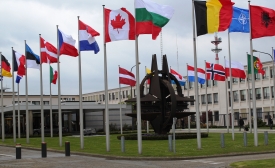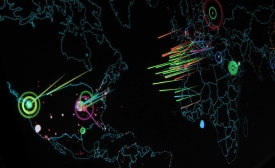social media
Mark Zuckerbeg’s charm offensive in China won’t let up. [...] Zuckerberg’s goal, of course, is to bring Facebook to China, which has been blocked by Beijing since 2009. Adding just half of China’s 668 million internet users to Facebook would increase the social network’s total by 20%—and create a lucrative new market for advertising and publishing.

Building on Bjola's recent analysis of NATO's online bubble, Manor looks at NATO's network.
Prince Harry paid tribute to the resilience of the people of Nepal in recovering from last year's devastating earthquakes, before visiting destroyed cultural sites on his first visit to the Himalayan nation. Speaking Saturday in the capital, Kathmandu, at a government reception to mark the start of his five-day visit, the prince told assembled dignitaries he had long wanted to visit the country.
President Obama has produced a video every Nowruz in which he directly talks to the Iranian people inside Iran as well as the Iranian diaspora. His messages have not always been the most appealing, but in the last couple of years, they have drastically improved to connect with the majority of his audience.
Despite once claiming to be a technological dinosaur, Pope Francis has expanded his social media presence by joining Instagram, launching the new account with a picture of himself knelt in worship alongside the caption “pray for me”.
One of the objectives set out as part of the Netwar in Cyberia Research Project is to produce a strategic-level assessment of the information environment in which extremist groups operate. This will allow an analysis of collective and emergent behaviors within complex information systems and the identification of factors which could influence the success of Public Diplomacy responses to Jihadist online content.

Forget proxy metrics and studying a single Twitter list—this is what Jihadist information dissemination really looks like.
The embassy, at least in its traditional form, is facing an existential crisis. The global transformations of the twenty-first century have dramatically changed the way nations practice diplomacy. The rise of digital communications, diminishing resources, and growing security threats all raise the question of whether the traditional embassy is still relevant.







